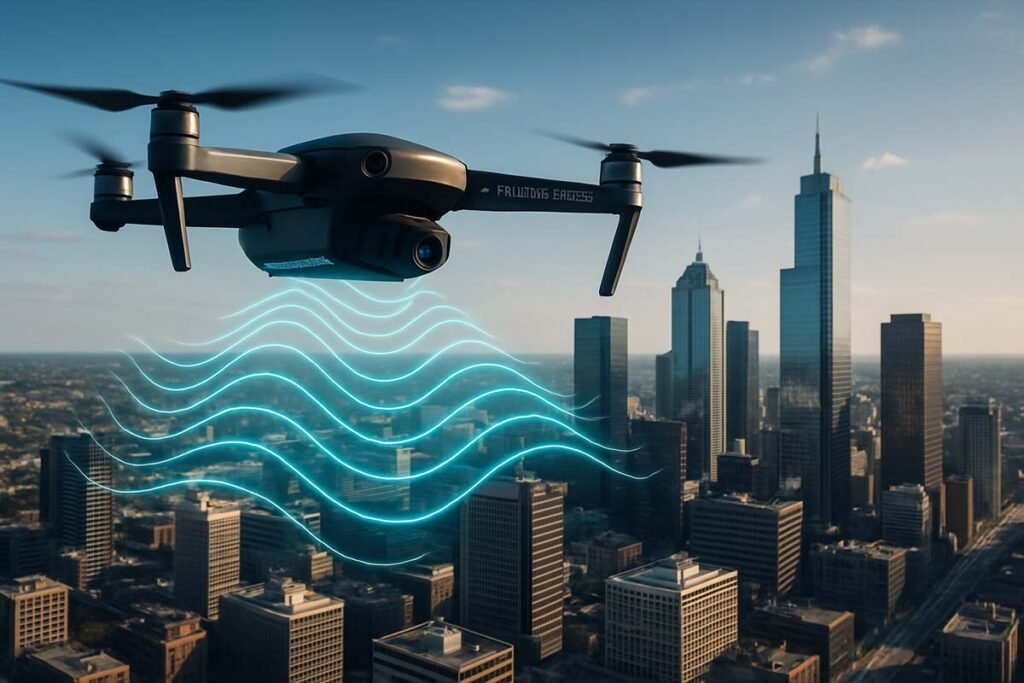As climate change accelerates, cities across the United States face mounting pressure to reduce their carbon footprints and adopt sustainable practices. The good news? Artificial intelligence (AI) is emerging as a powerful tool to help US cities become greener, smarter, and more resilient. From optimizing energy use in buildings to managing city-wide transportation flows, AI-driven technologies enable cities to achieve sustainability goals efficiently and effectively.
In 2025, the fusion of AI and sustainable urban planning is no longer a futuristic ideal — it’s a tangible reality transforming how millions of Americans live, work, and breathe. This comprehensive guide explores how AI is driving environmental innovation in urban centers, showcasing notable technologies, success stories, challenges, and future prospects. Whether you’re a city planner in Seattle, a resident of New York, or a tech-savvy environmentalist in Austin, uncover how AI-powered smart tech is shaping the greener cities of tomorrow.
The Urgency of Sustainability in US Cities
American cities are critical battlegrounds for climate action. Urban areas account for over 70% of US energy consumption and carbon emissions, according to the Environmental Protection Agency (EPA). With populations swelling in metros like Los Angeles, New York, Chicago, and Houston, infrastructure strain exacerbates pollution and resource depletion.
The federal government and local authorities increasingly emphasize sustainable urban development, targeting net-zero carbon goals by 2050. However, traditional approaches struggle to meet these ambitious targets efficiently. Enter AI — a tool that empowers cities to optimize resources dynamically, monitor environmental indicators comprehensively, and engage citizens interactively.
AI’s Role in Driving Urban Sustainability
Artificial intelligence brings unparalleled capabilities:
- Real-time data processing: AI systems analyze data streams from sensors, weather reports, and user behaviors to make decisions instantly.
- Predictive analytics: These models forecast energy demand, traffic patterns, and pollution spikes, enabling proactive management.
- Automation: AI automates systems — from lighting to traffic signals — to reduce unnecessary usage and emissions.
- Citizen engagement: AI-driven apps provide personalized eco-tips and crowdsourced environmental data.
Combined, these capabilities turn cities into adaptive ecosystems that conserve resources while enhancing urban quality of life.
Smart Energy Management Systems
Optimizing energy use in buildings — homes, offices, and factories — is a prime focus.
Intelligent HVAC Controls
- AI-powered thermostats (e.g., Google Nest, Ecobee) learn occupancy patterns and weather forecasts, adjusting heating and cooling for max efficiency.
- In New York’s high-rises, AI-driven systems reduce energy use by up to 20% annually.
Demand Response and Grid Integration
- AI balance electricity supply and demand, incorporating renewable energy sources dynamically.
- Cities like San Francisco deploy AI to integrate solar and wind into the grid, minimizing fossil fuel reliance.
Microgrids and Energy Storage
- AI manages localized energy generation and storage, enhancing resilience.
- During heatwaves, AI-optimized microgrids ensure essential services stay powered reliably.
AI-Optimized Transportation and Traffic
Transportation is a major emissions source and efficiency bottleneck in US cities.
Smart Traffic Signals
- Using cameras and sensors, AI algorithms adjust signal timing in real-time.
- Studies show AI-equipped signals reduce congestion in cities like Chicago and Atlanta by 15–30%.
Public Transit Scheduling
- AI predicts rider demand and optimizes bus/train frequencies.
- Los Angeles Metro uses AI-powered scheduling to improve efficiency and rider satisfaction.
Electric Vehicle (EV) Management
- AI guides charging patterns based on grid load and user battery needs.
- Key US cities offer AI apps that direct EV drivers to optimal charging stations, promoting adoption.
Shared Mobility and Micromobility
- AI platforms coordinate e-scooters, bike-shares, and ride-hailing for better utilization and reduced emissions.
Waste Management Revolutionized by AI
Efficient waste collection and recycling are pivotal for urban sustainability.
AI-Driven Trash Collection
- Sensors on bins notify collectors when full, optimizing routes and reducing fuel use.
- Detroit piloted AI route optimization, cutting truck emissions by 25%.
Automated Recycling Sorting
- AI-powered robots use computer vision to sort recyclables faster and more precisely.
- US recycling centers are increasingly adopting these systems to improve rates and reduce contamination.
Environmental Monitoring and Pollution Control
Real-time air and water quality monitoring help cities respond to environmental hazards.

AI Sensors and Drones
- Drones equipped with AI analyze urban pollution levels in dense areas like Los Angeles.
- AI activates alerts and mitigation efforts during smog peaks
Predictive Pollution Modeling
- Boston uses AI to forecast harmful pollution days, enabling public warnings and temporary restrictions.
AI for Water Management and Conservation
Water scarcity and quality challenges prompt smart solutions.
- AI monitors pipe leaks and usage patterns in cities such as Phoenix, reducing water loss.
- Smart irrigation systems adjust watering schedules based on weather data, saving millions of gallons annually.
Notable Case Studies from US Cities
- New York City’s Smart Lighting Initiative
AI-adapted streetlights reduce energy by 60%, improve safety with adaptive brightness. - San Francisco’s AI-Managed Energy Grid
Integration of renewables with AI demand response reduced emissions by 40% over five years. - Chicago’s AI-Optimized Traffic Network
Intelligent signals and routing slashed average commute times by 10%.
Benefits of Sustainable AI in Urban Environments
- Significant energy savings and carbon footprint reduction
- Improved public health through cleaner air and water
- Enhanced urban resilience and disaster response
- Greater inclusivity through accessible, adaptive tech
- Cost savings for municipalities and taxpayers
Challenges and Considerations for Cities
- Infrastructure costs and retrofitting old systems
- Data privacy and security in urban networks
- Addressing algorithmic biases and ensuring equitable outcomes
- Ensuring interoperability among diverse systems
- Public engagement and technology literacy programs
Expert Opinions on Sustainable AI
“AI is not just a tool for efficiency — it’s a partner in achieving our climate goals.”
— Dr. Amelia Johnson, Environmental Technologist, MIT
“Cities that embrace AI today will be the smart, sustainable metropolises of tomorrow.”
— Mayor Linda Evans, Denver
How Residents Can Engage With Smart City Initiatives
- Participate in city surveys on smart tech deployment
- Use apps that provide real-time environmental data
- Advocate for equitable tech access in underserved communities
- Embrace sustainable behaviors complemented by AI (e.g., smart thermometers)
The Road Ahead: The Future of AI and Sustainability
Advancements such as quantum computing and AI fusion promise breakthroughs in carbon capture, urban farming, and climate modeling. In the next decade, AI will underpin everything from autonomous public transit to zero-waste urban design, sculpting a greener America for generations.
FAQs: Sustainable AI & Smart Cities
- What is sustainable AI in cities?
AI-powered tech focused on reducing environmental impact and enhancing urban life quality. - Are AI-powered smart grids expensive?
Initial costs are high but offer significant long-term savings and emission reductions. - How does AI help reduce traffic emissions?
By optimizing routes and traffic flow, AI lowers idling and congestion. - Is my data safe in a smart city?
Leading cities implement robust privacy and security protocols compliant with US laws. - Can AI make older infrastructure sustainable?
Yes, AI enables smarter monitoring and retrofitting for efficiency. - Are these technologies accessible nationwide?
Major cities lead, but rural areas follow with scaled and affordable solutions. - How can I support smart city initiatives?




Pingback: Workforce of Tomorrow: Essential AI Skills US Professionals Must Master in 2025 - FirstsPost
Pingback: How AI Transforms US Finance: Fraud Detection, Trading & Customer Experience - FirstsPost